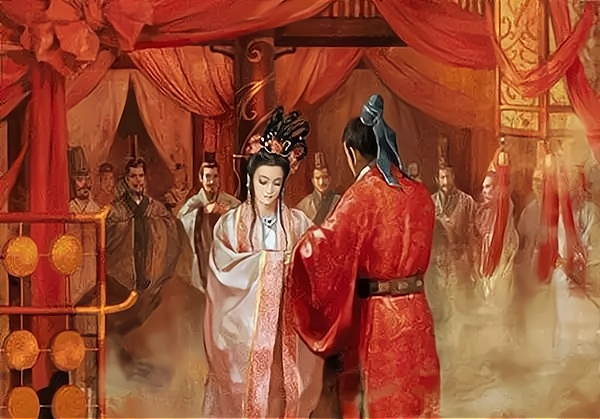专访“中国文化大讲堂”首期嘉宾冯学成先生: “年轻人学习生活,应遵循‘立志、炼性、开眼、致用’八字箴...
- 文化
- 10小时前
- 421
《春华秋实》:当前,社会环境复杂,各种诱惑和干扰不少,冯先生能否为处于求知阶段的年轻人提供一些学习、生活方面的建议?
冯学成: 我想用八个字概括这个问题的答案:“立志、炼性、开眼、致用。”具体说来,我们每个人都是有追求的个体,在追求目标的过程中,我们要时常反问自己,这个追求是否高尚?是否存在私心?我把“立志”中的“志”字做个说文解字:就可以诠释为“士”之心。从中国古代以来“士”阶层就有非常重要的地位和作用,翻开古代典籍,从诗经一直到宋明理学,都由“士”完成。我们今天能从这些文化估计中感受到“士阶层”给我们留下的优秀历史文化,好比火烧阿房宫,但这么多年后我们反观古籍还是能有身临其境的感悟,这是物质文明所不能比的。所以士之心,其实就是圣贤之道,也要求我们有圣贤的胸襟。这也是要求“立志”,要的是“士”阶层的道德有“仁义礼智信”感化的心。
其次,“炼性”所指的是修炼心性。毕竟身为芸芸众生,我们天性结构并不算优秀,且每个人都有阴暗面,如果不及时调整,就会占用我们智慧的空间干扰理性的运行。所以要通过真心诚意的修炼,把精神的垃圾排除掉。一个优秀的人格修成必须通过“炼性,美化道德,优化智慧,强化力量。
同时,我们也应该打开智慧之眼。中大(深圳)的同学正年轻,性格品质也非常优秀。在面对未来时,我们要努力使自己越来越优秀,在这个过程中,我们要把理性放在最佳位置。给大家举个例子:如果一个灯泡在这里,用它只可以照亮一间屋子,但到处都是模模糊糊的,假设现在给你一个电筒、一个灯罩,虽然从表面上它放弃不少空间,但集中在一个范围里,它所能及的空间都清楚明了。这样的取舍就是智慧,选择确定了,应该排除其它诱惑和干扰,坚定地走下去。
《春华秋实》:人生中要做的选择很多,怎样的选择才是明智而不至于后悔的选择?
冯学成:我总跟学生说,选择分大小,小到选择包括买个车,买家具,挑选颜色样式;大到选择事关事业,婚姻等。我给他们的建议是“小事用脑,大事用心”。通常,成功与失败的人,在聪明程度上是差不多的,犯错误也差不多。那成功的人和失败者相比,最重要的差别就在于各自的选择。所以,选择很重要。小的选择上用“脑”做判断,大的选择上听从自己的心,有助于做出正确选择。
《春华秋实》:学校初办,有同学希望组建国学社,弘扬中国文化中的“温良恭俭让”,您能给一些建议吗?
冯学成:我就建议参加这个社的同学多读经典,在学校课程之外多读国学。这部分经典包括:孔孟老庄谈、唐诗宋词、《史记》等等。其次,学习国学首先要了解中国古代思想的特性、思维方式。儒家、道家、佛家的思维方式各具特色,我们应考虑把他们融会贯通为当代人所用。办国学社切忌封闭,学生对先进的优秀的西方文化要保持敏感性。人类文明只有一个,是不分东方西方的。第三,除了读经典,还鼓励大家多写文章,四言八句,律诗绝句也建议试着写,还可以写写古文。游玩的时候像柳宗元、欧阳修一样写一写游记,毕竟写作对美化情感,培养思维都很重要。因为古文很精短,很经济,惜字如金。几十上百个字,他们就可以组成优美的,让人浮想联翩的,回味无穷的文字。国学社没有创作是不完整的,现在的很多国学社只停留在读的阶段是不够的,要有创作出来才是一个优秀国学社的表现。
“To Learn How to Live a Life, Young People Should Follow the Four Steps:‘Set Goals, Train Your Mind, Open Your Eyes and MakeUse of What You Learn.’”---Feng Xuecheng
Q: In this complicated world, youngpeople are facing temptations every day, and sometimes they feel confused.Would you like to give them some advice on study and life?
Mr.Feng: My answer to the question is the four steps-- “Setyour goals, train your mind, open your eyes and make use of what you learn.”
To be more specific, each of us haspersonal goals to achieve. In the process of setting our goals, we should ask ourselvesif the goals are for a noble cause, or are they out of selfishness. Let me putthe word “goal” (志) in ancient Chinese terms, in which you find “heart”(心) with being a “scholar-official” (士). The scholar-official class were held in highregard in ancient Chinese society, and it played a very important rolethroughout Chinese history. When you open the ancient books, from the Book of Songs (诗经) to that of the Confucian school of idealistphilosophy of the Song-Ming dynasties, you find them all written, or compiled, by scholar-officials. These Chineseclassical works, thanks to the scholar-officials, have allowed us to savor therichness of Chinese history and culture. To take the story of the Razing of theE-pang Palace as an example, the historical scene is so vividly portrayed inthe ancient works that it makes you feel like you’ve been there. These are theexperiences that material civilization cannot offer us. To sum up, the thing at the heart of beingscholar-officials (士之心/志) is the way (Tao) of men of virtue, as in the ancient times . In otherwords, when we set our goals we must have the five virtues in mind, as they are at theheart of being a scholar-official, which are humanity, righteousness,propriety, wisdom and integrity.
The second step is mind-training. All in all, we are mortal beings, bornwith limits and defects. Everyone has a dark side. If we don’t adjust in time,our mind will be preoccupied with negative stuff which will do harm to ourrational thinking. A dedicated mind-training will enable us to clear up rubbishfrom our mind. To become a man of outstanding character, and to attain virtue,wisdom and strength, mind-training is necessary.
“Eye-opening”, the third step, means opening theEye of Wisdom. Looking towards the future, young people, like high qualitystudents of CUHK (SZ), should make great efforts to achieve excellence. In thisprocess, we need opening the Eye of Wisdom, by means of putting rationality inits place, and be wise in decision-making. For example, a light bulb may lightup a whole room, but the lighting can be weak. Yet with a lampshade, the light,though confined, allows you see clearly and get focused on things within aspace. In this case, accepting (a lampshade) is wise—and once you make achoice, stick to it, resist temptations and avoid interference.
Q: Thereare always moments in life when we have to make choices. How to make a choicewisely without any regrets in the future?
Mr. Feng: As I always tell my students, there are choicessmall and big, from choosing the color of a car or the furniture you buy, tochoosing a career or someone to marry, etc. My advice is: “For small things, useyour head; for big things, listen to your heart.”
Generally speaking, successful people andunsuccessful people are not quite different from each other in terms of IQ.They make similar mistakes— smart people make mistakes, too. What makes themdifferent is choices-making. By all means, choice-making is every important.Use your head when making small choices, and follow your heart when making agreat decision— it helps.
Q: CUHK(SZ) is newly established, and many students are organizing their ownsocieties. One among them is the Chinese Classics Study Group, which emphasizeson promoting the Confucian teaching of being “modest, kind, polite, restrainedand gentle”. Do you have any suggestions for the group?
Mr. Feng: Firstly, I would suggest that students of thegroup read Chinese classics as much as they can, as part of theirextracurricular studies. By Chinese classics I mean teachings ofConfucius-Mencius, Laozi-Zhuangzi, Poetry of the Tang and Song Dynasties, and the Records of the Grand Historian,etc.
Secondly, beforereading Chineseclassics, the reader needs to understand the characteristics of ancient Chinesethoughts, and their ways of thinking.Confucianism, Taoism and Buddhism all have theirdistinctive ways of thinking, and we should study them from a syncreticapproach, and put to use in our modern life.Be careful to avoidbeing close-minded in running your study group, and always be sensitive to the advancementof Western culture. In a sense, there is just one civilization, that is, humancivilization, of both East and West.
Thirdly, I encourage the students to practicetheir writing skills besides reading. Be it eight lines, four-word verses,short poems, regular poems, or prose in the classical style. When travel, keepyour travel notes as Liu Zongyuan or Ouyang Xiu did. Writing is very importantin cultivating your passion and your thinking. Classical Chinese appearsextremely concise and compact in the use of words, and with fewer than ahundred characters it makes a beautiful piece, which can unleash yourimagination or let you ponder over it. Reading without writing practices isincomplete, and readingalone not enough especially for a classical Chinese study group.Creative writing is an essential practice for a qualified classical Chinesestudy group.
上一篇
正版49图库下载安装49




